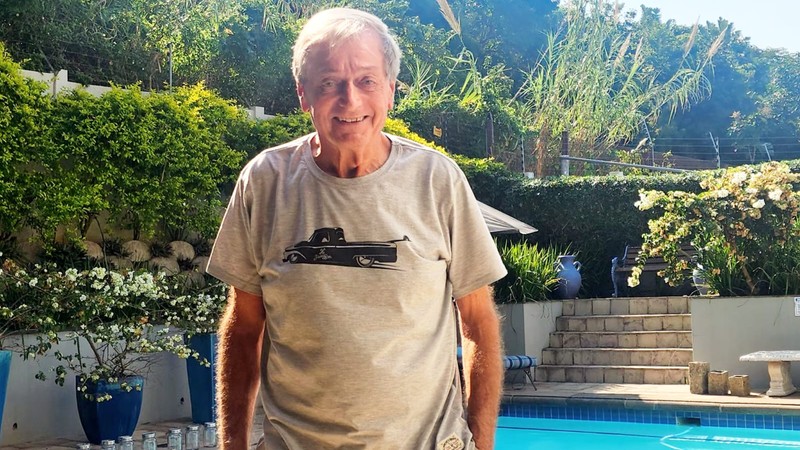
KZN’S HARSH TOURISM REALITY: FROM FIVE-STAR DREAMS TO FINANCIAL NIGHTMARES
Umhlanga, where cigars, fast cars, and the well-heeled meet. Here, business owners sip their cocktails, basking in the tropical sunshine with sweeping views of the Indian Ocean enveloping this seaside town.
The dolce vita? I wanted to find out.
Thus, I set off to meet 76-year-old Bob Humphreys, owner of The Hamptons, a five-star guest house in the Umhlanga village, at the heart of the iconic Umhlanga beach with its popular hotels, restaurants, and vibrant nightlife.
I ensured I looked the part of Umhlanga — minus the heels, which I could never master.
He would have to tolerate my flat sandals. Bob greeted me with a warm smile, dressed in shorts and sandals himself — not quite the Hamptons look, if the name is anything to go by, but it reflected sandy beach picnic vibes and set the scene for a good conversation by the pool.
I was keen to hear all about his stress-free dolce vita Umhlanga life.
But I was not prepared for what was to come, and that was even before coffee was served. It all began with my first question: "How did you get into this guest house business?"
"Well, after owning a few restaurants, I sold the last one seven years ago and decided I wanted a stress-free retirement lifestyle with easy living by the sea and a steady income. So I decided to purchase this guest house and spent close to R2.5 million converting it from a three-star to a five-star establishment. Then Covid-19 hit. We took out loans, closed for 10 months. Barely back on our feet, we had to deal with load shedding, looting, flooding, beach closures, and all the negativity that came with it. My dreams went out the window. I live in a small apartment above my garage..." His voice trailed off, his blue eyes striking against the well-kept blue of his pool.
Being a five-star establishment means he has to maintain certain standards — so he cannot cut costs even if he wanted to.
"I have to have specific quality bed sheets and even the duvet, for example. I can't compromise on quality. My laundry bill just for bed sheets comes to R8,000 per month, more during peak season or if I have short stays because that means washing daily," he explains.
Dolce vita? Far from it.
Bob is now on sleeping pills, something he's been forced to take to prevent him from staying up all night thinking of the business and its challenges. He's stressed.
Rising operating costs, cancellations each time the beaches close due to E. coli, rate hikes, electricity hikes, dwindling tourist numbers, and no control over any of these macro factors. He's considering selling up.
He's not alone. More than 1,000 businesses closed down in the last year across the country, and the hospitality sector suffered the most. KwaZulu-Natal, in particular, continues to take a beating.
Almost R10 million a day — more during peak season — is the estimated loss suffered by the tourism sector in Durban due to beach closures. Beyond this, the same sentiment is echoed.
Not enough is being done to drive tourism. There's a lack of a business-centric approach to tourism.
Their impassioned pleas seemingly fall on deaf ears.
But, incredibly and despite all that, there's still a fire burning in their souls. That underbelly of passion, the resilience and drive to keep going. A love for the province, with its rolling hills, diverse melting pot of cultures, year-round sunshine.
Even in the midst of suicidal thoughts, financial stress, and little will to go on. Just a few months ago, a restaurant owner in Umhlanga was brought back from the brink of suicide.
The financial stress of month-end bills became too much. He's still in business. And lives for another day.
Unlike other provinces where recovery post-Covid is already on a positive trajectory, KZN has been at a much slower pace.
But it's that fighting spirit that keeps the industry going against all odds. I'm convinced it's a KZN gene.
That resilience despite the despair. The courage and hope in the face of adversity. Perhaps it's because tourism in KZN is not just a business. It's driven by passion and hard work.
It's long hours, grit, and an unwavering commitment to saving livelihoods. And the magic of KZN is what keeps hope alive.
Worth R1.36 billion and contributing 3.7% to the economy, the sector is a major provider of jobs. And this is echoed over and over again by those who come back from the brink.
"Ten percent of people in tourism are making good money while 90% are working with low margins and on survival mode," says Brett Tungay,
IOL News
2024-04-25T08:12:31Z dg43tfdfdgfd